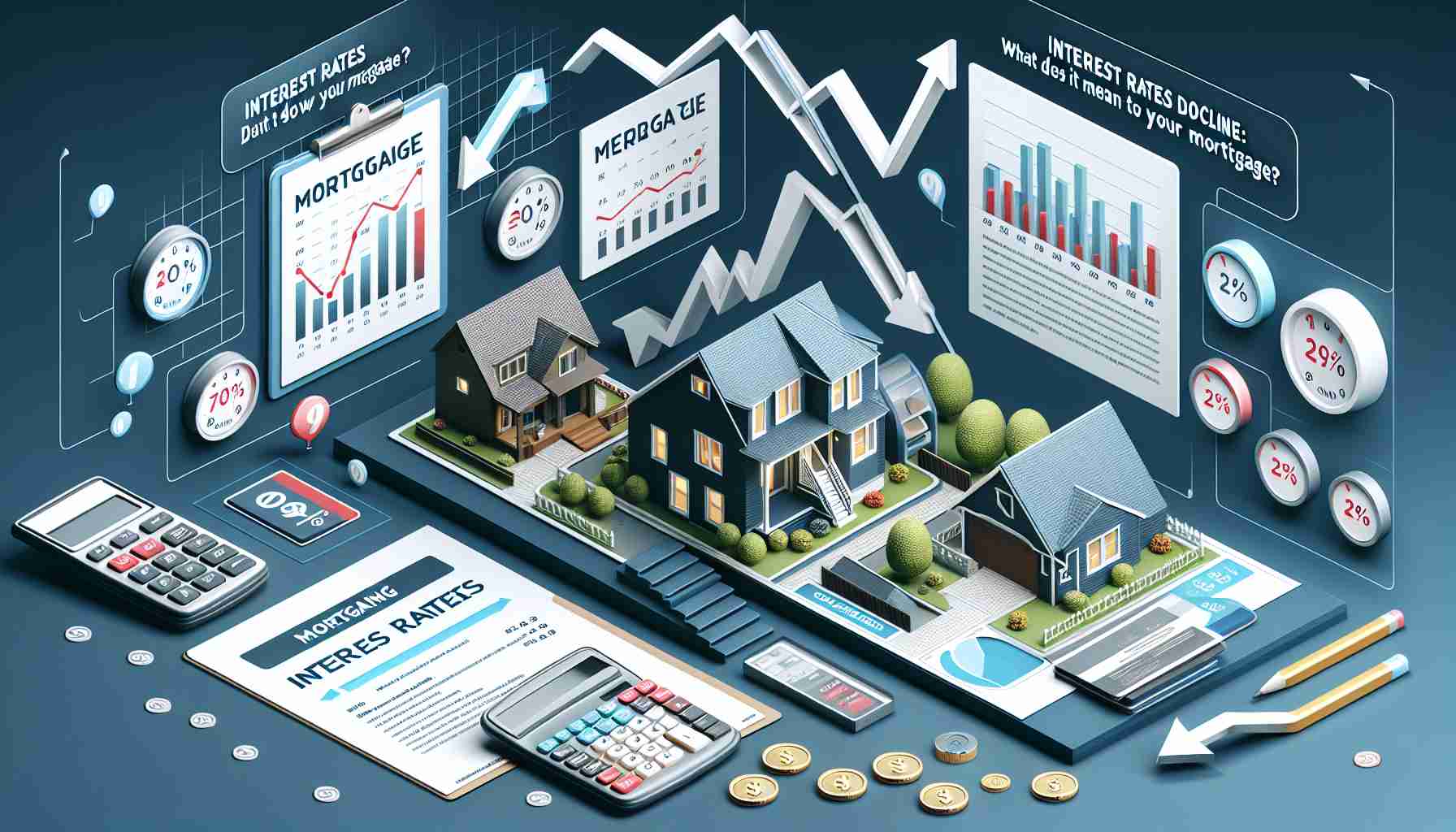Interest Rates Plummet
The interest rate market has seen a significant drop recently. Decreasing from historically high levels earlier this year to new lows, the interest rates are creating a dilemma for mortgage holders. Should they stick with variable rates tied to the market or take advantage of the aggressive offers from banks for fixed-rate mortgages? Leading financial experts suggest monitoring the market trends closely before making a decision.
Forecast and Projections
Analysts predict a continued downward trajectory for interest rates in the coming months. With the European Central Bank expected to announce further rate cuts and the market responding in kind, borrowers stand to benefit from reduced monthly payments. Tools like free mortgage revision calculators can help individuals estimate potential savings based on current market conditions.
Impact on Fixed Rates
While variable rate borrowers stand to gain from the rate drop, fixed-rate mortgage holders are also experiencing the effects. Banks are now able to offer lower fixed interest rates to attract new customers and entice existing ones to transfer their mortgages through creditor substitutions. This ongoing competition among financial institutions is expected to lead to more competitive fixed-rate offers by the end of the first quarter next year.
**Understanding Mortgage Interest Rates Decline: What You Need to Know**
Unforeseen Considerations
Amidst the recent interest rate decline, it’s crucial to consider the impact on adjustable-rate mortgages (ARMs). These mortgages typically have lower initial interest rates than fixed-rate mortgages but adjust periodically according to market conditions. As interest rates decrease, homeowners with ARMs might see their monthly payments decrease, providing temporary relief. However, it’s essential to anticipate how future rate adjustments could affect long-term affordability.
Refinancing Opportunities and Risks
One critical question arising from the current scenario is whether it’s advantageous to refinance a mortgage in a declining interest rate environment. While lower rates can potentially lead to significant savings on monthly payments, refinancing comes with associated costs such as closing fees and points. Understanding the breakeven point for recouping these expenses versus long-term savings is crucial in making an informed decision.
Challenges in Decision-Making
The decrease in interest rates poses challenges for homeowners in determining the appropriate mortgage strategy. Choosing between a fixed-rate and a variable-rate mortgage involves assessing personal financial goals, risk tolerance, and market forecasts. While fixed-rate mortgages offer stability with predictable payments over the loan term, variable-rate mortgages provide potential savings in the short term but expose borrowers to interest rate fluctuations in the future.
**Advantages and Disadvantages**
Advantages of Declining Interest Rates:
– Lower monthly payments for existing variable-rate mortgage holders.
– Increased affordability for individuals looking to enter the housing market or refinance existing mortgages.
– Potential savings through refinancing for long-term homeowners.
Disadvantages of Declining Interest Rates:
– Uncertainty regarding future interest rate movements, affecting decision-making for mortgage holders.
– Challenges in weighing the benefits of fixed-rate versus variable-rate mortgages.
– Risks associated with refinancing costs and the potential for increased debt obligations.
For more in-depth information on mortgage interest rates and how they impact borrowers, visit Consumer Finance.
